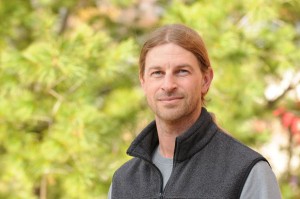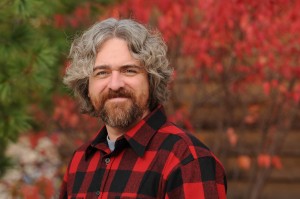by John Gagnon, promotional writer
Will Lytle, a junior in wildlife ecology and management, slipped himself into his kayak in June at Elk Lake, Minnesota, and paddled his way down the Mississippi River, arriving in the Gulf of Mexico in August.
Since youth, Lytle, who is 20, has loved flowing water, starting with the creek in his backyard in Elgin, Illinois; so he navigated “the biggest creek I could find”–this a river that drains 31 states and two Canadian provinces. He rode old man river for 2,350 miles. “The best 54 days of my life,” he said. “It was a simple task that I loved doing. It was very in the moment.”
He went from maples to cypresses, from eagles to alligators, from 20 feet wide to a mile wide, from swamp to bayou. All over, seaweed “and its greedy tendrils,” he wrote in his journal. He sang to the cows in farm country
There was some danger: five-foot waves in Lake Winnibigoshish (he knows how to right himself should he tip over); at St. Louis, a seaplane almost ran into him. There was much discomfort: heat and mosquitoes were “unrelenting.” Near Memphis, he wrote, “I can’t make a fist or straighten my fingers.”
He was alone for the first three weeks unsupported; from the Twin Cities to the Gulf, his brother followed the bank and they saw each other in the night and in the morning. They slept in a tent, and, once in awhile, enjoyed a “real-life bed” in a motel or a garage. Three times they bathed at a car wash and got itchy from the wax in the sprayer.
Lytle endured all manner of weather: sunshine, thunder, lightning, wind and hail. “How does the wind choose where to blow?” he asked himself in his journal. “Whatever direction I’m facing,” he answered himself.
His kayak, which weighed 60 pounds and was stuffed with 100 pounds of gear, was named “She-Knows-Who-She-Is.” When it comes to that kayak, he’s like a cowboy with a good horse. “My dearest,” he wrote. “. . . You and I are one…. I would rather spend 60 days with no one else.”
Along the way there was lots of wildlife and beauty. “I captured some memories,” he wrote. There are three metropolitan areas on the river above New Orleans–Minneapolis-St. Paul, St. Louis, and Memphis–but he noted, “Ninety to ninety-five percent of the river is completely wild. It’s just trees and water.”
At night in bayou country, he was watched by alligators, their eyes glowing red in the beam of his headlamp–what locals call “Christmas lights,” he reported. He also paddled through the night by moonlight. His longest stretch of travel: 26 hours, 100 miles.
His engaging journal is both informative and fanciful: on a lean diet, he craved fat so much he drank bacon grease; in one section he took on the lingo of old pirate tales–“I lost none but me sweat and tears to feed the fishes.”
All in all, it wasn’t that hard. “I never questioned whether I’d be able to finish. There weren’t any huge, impossible roadblocks.”
The trip cost about $5,000: his savings, donations from family and friends, and sponsorships.
He was looking for “an endurance trip”; he found that, plus solitude and introspection. The best part, he said, was “being able to be alone for so long without any influences of the modern world around you.” He had some big thinks. “I solidified my understanding that I don’t understand everything yet.”
Is he good company for himself? “Some days I’m alright company. Other days it’s a trial”–indeed, this purposeful man is somewhat adrift. “I just kind of do whatever, whenever, and it’s really nice. But it’s not always going to work like that, I guess.” Partway through the trip, he started thinking about duties and responsibilities. “There is no more avoiding them,” he wrote, and he wondered whether his “poetic youth” would be over when the trip was over.
He’s unsure whether he wants a career in the military (he’s in Army ROTC) or wildlife ecology. He also has thought about becoming a priest. On the river, he said, “I prayed probably ten times a day. I would say traditional prays, like the Our Father, in rhythm with my stroke to help me get through more demanding physical portions. Other than that, I prayed in a rather unfocused, unstructured form for things like wisdom, peace and patience–instead of miles, comfort, or success.
“I’m very unhappy with my life in many dimensions,” he continued, “so my discontent drives me. I’m searching for something that will make me feel good, but also is productive and proactive–build a life that isn’t unsound.”
What’s next? He’s thinking about training for kayak racing in the 2012 Olympics. He would like to have his own TV show about adventure and nature. He wants to do something “shorter but more dangerous”–like kayak-surfing Lake Superior in a winter storm when the waves are big. (“You just seal up and go out and ride in the ice and the snow.”) He also wants to cross the open water of Lake Superior, from Copper Harbor to Isle Royale. He figures he can do the roughly 55 miles in 14 to 18 hours, weather permitting.
“All of it sounds pretty good,” he concluded, “but I just realized two days ago that I want to go to Alaska for adventures there.”
To read his journal, visit www.willbewild.com .
 Assistant Professor Rodney Chimner and Jim Bess have received $148,650 from the US Environmental Protection Agency for a 32-month project, “Restoring Peatlands from Large Scale Ditching.”
Assistant Professor Rodney Chimner and Jim Bess have received $148,650 from the US Environmental Protection Agency for a 32-month project, “Restoring Peatlands from Large Scale Ditching.”
2002 – Tammie (Martinson) Paoli (MS) and her husband Joe (ME 2002) announce the arrival of their son, Lorenzo Louis, born September 25, 2010. Enzo joins big brother Vin, 2. Congratulations to the entire family!
